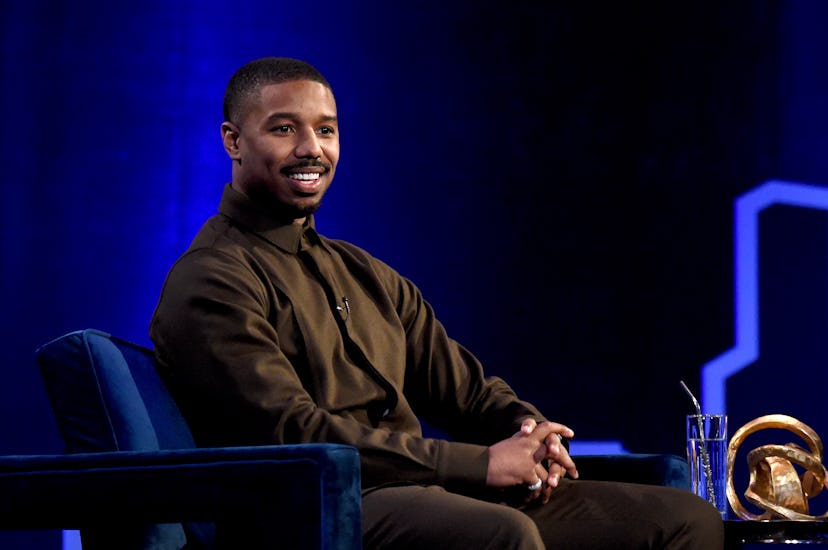Michael B. Jordan Says He Used Therapy to Get Out of the Mindset of Black Panther‘s Killmonger

Actors regularly open up during press tours about how, exactly, they dove into their most daring roles, but they rarely explain how they got out of character. Michael B. Jordan, however, did so this week, while filming an episode of Oprah Winfrey’s SuperSoul Conversations in New York City on Tuesday. Throughout their conversation, Jordan explained to Oprah not only how he developed a “lonely” existence for Black Panther villain Erik Killmonger, but also how he returned to his much less lonely real life after filming had wrapped.
“I figured Erik, his childhood growing up was pretty lonely,” Jordan said, per USA Today. “He didn’t have a lot of people he could talk to about this place called Wakanda that didn’t exist.” So, to harness “all that nastiness,” Jordan said he isolated himself from others. “I didn’t have a process. I just did whatever I felt I needed to do or whatever I felt was right in the moment, every step of the way,” he explained, but noted, “I didn’t have an escape plan, either.”
When it was time to move on from Killmonger, then, “It was a little tough for me at first,” he said. “Readjusting to people caring about me, getting that love that I shut out…I shut out love, I didn’t want love. I wanted to be in this lonely place as long as I could.” For help getting through this period of readjustment, Jordan said he turned to a therapist. “Your mind is so powerful. Your mind will get your body past a threshold that it would have given up on way before,” he told Oprah. “Honestly, therapy, just talking to somebody just helped me out a lot. As a man you get a lot of slack for it…I don’t really subscribe to that. Everyone needs to unpack and talk.”
In a joint interview with Margot Robbie for W earlier this year, Jordan spoke about what drew him to the complicated character of Killmonger, who, like Robbie’s Harley Quinn, is something of an antihero. “I like that. I mean, those are the most interesting characters to me sometimes, like when I’m watching films that, on screen, are the ones that you can empathize with,” he said. “Like, they want you to root against ’em. They want you to not like them. But somehow you can still understand where they’re coming from and that’s important.”